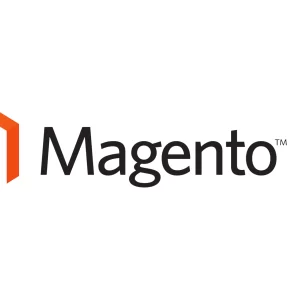With the E-commerce businesses taking over the internet by storm, many entrepreneurs are inclining towards having their eCommerce stores.
Talking about the statistics, revenue in the e-commerce market is expected to reach US$2,723,991M by the end of 2021, predicts Statista.
However, when you step into an eCommerce business, one of the most significant decisions you’ll have to make is choosing an eCommerce platform. Because a good and well-developed eCommerce store ensures long-term growth and profits, your eCommerce platform development is of utmost importance.
To offer an easy solution, multiple open-source eCommerce platforms can help you develop the eCommerce store for your project and cut down your development costs.
Thus, if you are on the bandwagon of owning an online store, this blog is the right place for you. Here we will talk about some good open-source eCommerce solutions that you can use for a good, feature-rich, and responsive eCommerce store for your project.
The open-source eCommerce software is customized for the sole purpose of giving you a shopping website with essential features like inventory management, product listings, cart, checkout, and options to integrate a payment gateway.
Let’s discuss in detail a few eCommerce open-source development platforms.
#1. Magento
The PHP-based Magento Commerce is one of the best eCommerce platforms to develop an e-commerce website for small- or large-scale businesses. Magento has two versions, namely, Magento 1 and Magento 2. The Magento developers are well versed with the development techniques, but the user needs to have good experience in PHP language for creating an e-commerce website through Magento.
The popularity of Magento is because of several tools that it has to help promote your brand. An array of these tools include SEO, communication, user content, etc. Apart from those attractive and business-oriented features.
Magento comes with more features like:
- Mobile Commerce
- B2B commerce
- Cloud Integration
- Page Builder
- Inventory Management
- Safe, secure, and trusted
- Order Management
- Open-source & Customizable
- Performance & Scalability
- Customer Service
Owing to these beneficial additions and essential features of Magento, people choose Magento for its eCommerce development. However, if you aren’t confident enough and face problems in developing an e-commerce site using Magento, you can hire Magento e-commerce developers from software companies.
#2. Nopcommerce
If you are looking for an eCommerce development platform based on ASP.NET Core, Nopcommerce is a perfect choice. Being a free and open-source eCommerce platform, the users can easily modify it compared to other eCommerce solutions like Magento or Prestashop.
Here are some of the significant benefits of choosing Nopcommerce for your next eCommerce project,
- Well-defined architecture
- Predictable
- Prompt community support
- Scalable and supports millions of products
- Works well on Dot Net framework with the latest components
- Regular updates with new features
- Nopcommerce is an opensource eCommerce solution with multi-vendor and multi-store features
- Is modular and easy to customize with a plugin
- Easy customization of themes
The user interface of the Nopcommerce admin panel is easy to use and has all the essential features used to offer a responsive design for mobile users. Moreover, you can also access the official marketplace, where you can get themes and extensions.
#3. PrestaShop
With a well-maintained open-source solution, PrestaShop is another open-source eCommerce platform that you can look forward to. PrestaShop comes with an official marketplace for themes and extensions to make it more feature-rich, attractive, and responsive.
Along with easy usability and here are some additional features of PrestaShop:
- SEO friendly performance
- Configure the internal search engine
- Create categories
- Track the product inventory
- Spread the word about your store
- Activate/Deactivate iFrames & HTML purifier
- Create and configure API keys
- Create SQL queries
However, you may not find it available as a one-click app, but you can download it from its official website. The PrestaShop is relatively easy to set up. However, you can also refer to the installation guide if you need help.
#4. OpenCart
The PHP-based eCommerce platform, OpenCart is utilized by many web developers and is quite a popular platform. Although the community isn’t actively maintained, you can still get support for extensions while most essential features fit right into your eCommerce store.
OpenCart is available to set up with one-click app installation support in most of the web hosting platforms. Additionally, Opencart is an easy-to-use and lightweight platform compared to other open-source platforms.
OpenCart is great for startups as it comes with more than 13000 modules and themes. Here are some of the key features of OpenCart:
- It comes with an administrator dashboard
- Has multi-store feature
- Includes various options & attributes
- Allows uploading unlimited products & categories
- Multi-Currency payment options
- It comes in more than 40 languages
- Offers Sales report
- SEO Friendly features
Opencart, with the features listed above, indeed gives the eCommerce outcomes more than expected.
#5. Drupal
When looking for an open-source eCommerce store with flexibility, Drupal is an ideal choice. It is yet another open-source eCommerce platform that is suitable for creating feature-rich eCommerce websites. With Drupal, you can do almost everything you need for an eCommerce platform.
Being a close competitor to WordPress, it is fully open-source with no premium version. It allows you to use all the excellent features in your eCommerce store without any extra payments.
Drupal makes your website faster, enhances your site, and is easier to administrate. Here are some more Drupal’s benefits:
- Easily adaptable
- Continuously improving
- Socially connected
- Flexible and easy to use
- Mobile Friendly
- 24*7 support
- Integrated with payment gateways, accounting applications, social networks, etc.
With striking Drupal features, it becomes easy for you to make an e-commerce website for your next project. If you find developing an e-commerce website challenging, it is always better to talk to professional Drupal developers for your online store.
#6. WooCommerce
While choosing WooCommerce, you should know that technically, you’re using WordPress as the platform and WooCommerce as a plugin. The WooCommerce plugin enables the features for the online eCommerce store.
Many people already know how to use WordPress; thus, it is easier to create a WooCommerce store.
Let’s talk about some of the key features of the WooCommerce store,
- Massive community support
- Add sales and orders
- Check status summary at-a-glance
- Add Extensions.
- Integrate social media into the store.
- Use Google Analytics and other reports.
- Add coupon and promotion options.
Being one of the best open-source eCommerce store builders, it’s easy to use, reliable, and supports numerous extensions and integrations for a successful online store.
Take home message
It is natural to get confused and always hard to choose between numerous open-source platforms when it comes to an eCommerce store development. However, all the open-source e-commerce platforms come with unique features, but you will have to decide the platforms that suit the best for your business.
Keep in mind that some eCommerce platforms suit the big enterprises, while some online stores work well for small-scale businesses.
It is common for non-technical people to have a vague or little knowledge about developing eCommerce sites. Thus, in this case, they can opt for an e-commerce software development company that can guide them on utilizing the website to make the most of their eCommerce store.






Very Impressive…. Thanks for the post